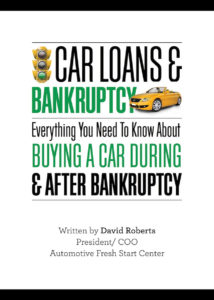
A Chapter 7 bankruptcy is a legal proceeding in federal bankruptcy court which can release you from any necessity to ever pay your debts.
In doing this, however, you do stand to lose any non-exempt assets you may have (stocks, bonds, cash in savings accounts, valuable artwork, etc.) to the trustee-in-bankruptcy appointed by the court. These are ordinarily sold and distributed amongst your creditors. This includes any income tax refunds that are due to you.
Fortunately, you are permitted to retain some important assets that the court considers exempt under federal law. These include your house, your car, clothing, personal items like furniture and house ware, etc. The usual cost due to the court for filing is just under $300.00.
What the Debtor (Filer) Must Do
First you and your attorney must attest to the fact that you understand that you are filing “factual information” and also that data being provided is warranted under existing federal law. This simply means that you understand both the state and federal laws that apply to filing under Chapter 7. The required forms under §521 and the Means Test in Official Form B22A (which determines your ability to pay certain costs) and numerous other documents are complex for any layman at law and should be handled by an attorney.
If you make too much money to file Chapter 7, you will be referred by your Attorney to look at filing Chapter 13 Bankruptcy.
Filing a bankruptcy has become considerably more complicated since the Bankruptcy Reform Act of 2005 became law. It includes, among other things, the necessity that the debtor attends one class or credit briefing before filing. Today, attorney’s fees for filing a Chapter 7 range from about $1275.00 for a simple filing to as much as $2,500.00 for complex cases. Anyone who attempts to handle his or her own bankruptcy today can reasonably be said to have had a ‘fool for an attorney.’ These filings are just too complex for a non-lawyer to handle properly.
The Chapter 7 Timeline
In most cases, you can expect to be adjudicated as bankrupt within 4-6 months from the date your action is filed in the federal bankruptcy court. While there are some important things to consider and do prior to the actual filing, your case really begins on the day you file it with the court. This is the day that the ‘automatic stay’ (temporary injunction) goes into effect. It prevents your creditors from contacting you, harassing you or dunning you for payment in any way. The next important date is approximately 20-40 days after filing. This is the 341 meeting of creditors with the court-appointed trustee.
You (and your attorney) must be present and be sure to bring your social security card and a photo ID. If the trustee requests any additional documents, be certain that you supply them as quickly as possible. You can expect to be discharged within 60-90 days after the meeting of creditors.
What Happens to My Secured Property?
Certain property that is secured such as your house and a financed car, boat or RV, may be repossessed by the lender and cannot be discharged in a Chapter 7 action. You may also opt to “reaffirm” your debt but there are conditions with that process. This means that you agree, in writing, to continue making the payments after you are adjudicated a bankrupt. Most lenders are happy to agree, since you have discharged your other obligations and cannot file bankruptcy again for seven years.
 For people considering bankruptcy, one of the biggest fears is:
For people considering bankruptcy, one of the biggest fears is:
“What will I do about a car?”
You likely believe that once you declare bankruptcy, you will have a hard time qualifying for an automobile loan. Our eBook with walk you through everything you need to know about buying a car during and after bankruptcy. Learn about your options so you can make the best decision for your circumstances.
Automotive Fresh Start Center, LLC is NOT a debt relief agency, as defined in section 101(12A) of the Bankruptcy Code. We do not provide bankruptcy assistance. The articles, videos, images, digital products, and other content maintained on this site as well as the opinions voiced in this material are for general informational purposes only and are not intended to provide specific advice or recommendations for any individual. No information on this site constitutes legal or financial advice and should not take the place of consulting with a licensed bankruptcy attorney, debt relief agency, or certified financial advisor.
